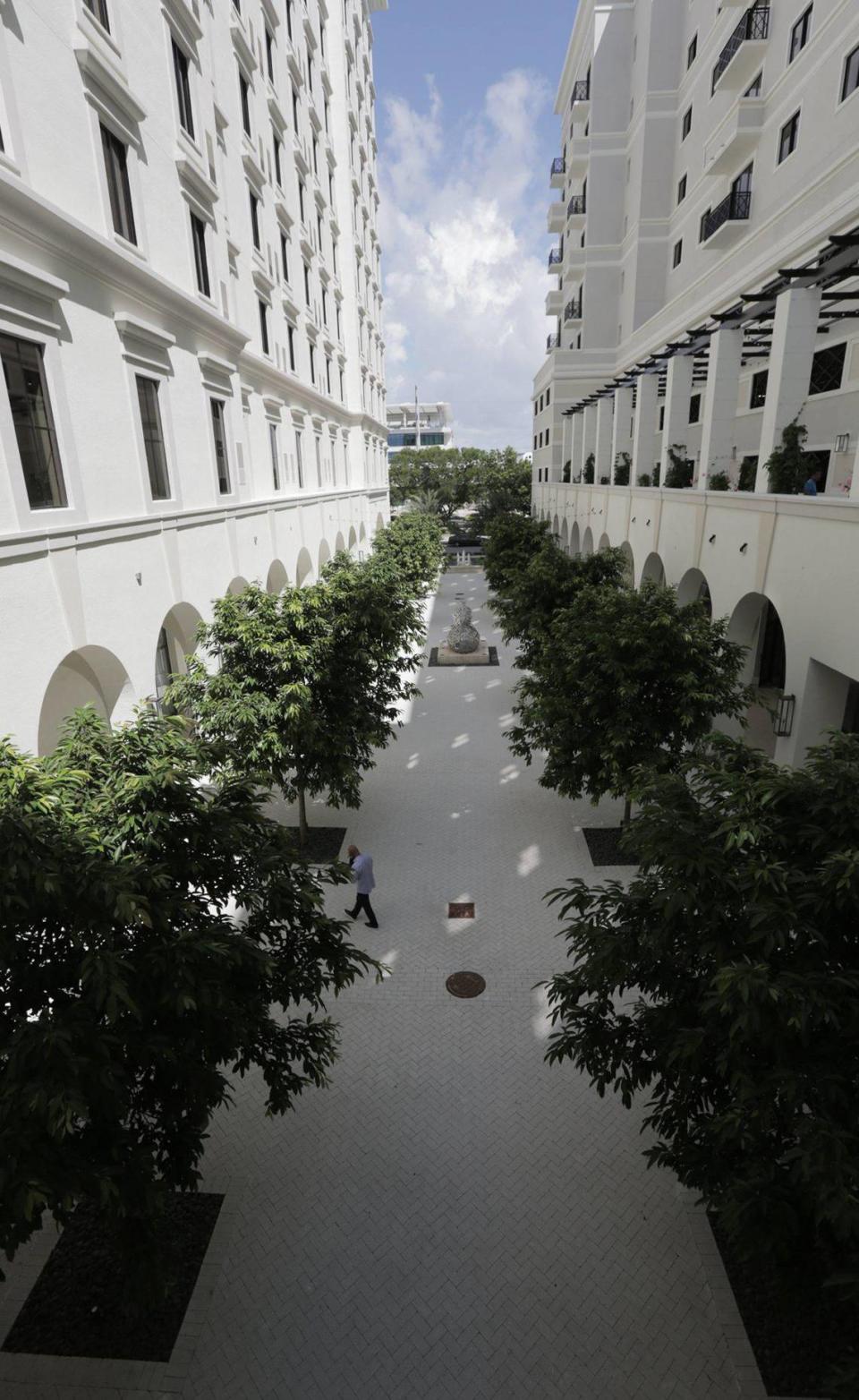Six months after closing their doors, Miami hotels emerge with new funding, renovations

Renovating and reopening a hotel in the middle of a pandemic may seem like a monumental risk, but for self-proclaimed “eternal optimist” Michael Liebowitz, hotel partner at Mondrian South Beach, it’s a risk worth taking.
When the Mondrian and other Miami hotels were forced to shut their doors six months ago, owners thought the ebb in tourism would be short lived. Six months later, while most have been able to reopen, hotels are still figuring out how to adjust to a world that remains largely at a standstill awaiting a COVID-19 vaccine.
Some, like the Mondrian, are moving ahead with scheduled renovations or even opening for the first time. Others are changing hands. All have let go of workers, leaving around 40,000 people in Miami-Dade without a job, according to an estimate from Florida International University. Though South Florida hotels received millions in federal aid, very little of that money made its way to the laid off workers who needed it.
Hotel occupancy in Miami-Dade dropped to 23.9% in April, down from 86.1% in February, according to STR, a global hospitality analysis firm. In August, 33.9% of available rooms in the county were sold, compared to 71.5% last year.
Despite the plummet in occupancy rate countywide, Miami-Dade still has the highest revenue per available room for the year to date among the top 25 tourism markets, according to JLL, a commercial real estate services company. That may have to do with the Super Bowl that Miami hosted in February, right before the pandemic hit, which is still providing some much-needed cushion for hotels.
The biggest risks for hotels are the international travel restrictions and the ban on cruises, said Andrew Dickey, an Executive Vice President with JLL Hotels.
“Those are the biggest impactors of room nights from a demand perspective,” he said. “The good news is Miami is very resilient from a demand perspective. Domestic travel will offset a lot of the international travel that can’t make it this year.”
Dickey expects to see very few hotels close permanently, but says many will change hands and a few will foreclose. Nationwide hotel transactions are down significantly this year, but private equity sales represent about 50% of transactions, compared to 20-40% in previous years.
“All hotels are in technical default via performance,” he said. “The interesting part for hospitality is you’re going to have a lot of non-traditional hotel buyers investing in this space because it’s a distressed bucket.”
The private equity influx has already begun in South Florida. Earlier this month, British private equity firm Reuben Brothers bought a 25% stake in JW Marriott Miami Turnberry Resort, owned by local real estate heir Jeffrey Soffer.
The Variety Hotel in Miami Beach could be offered up for a private equity buy too. The owners are facing foreclosure from their lender and have listed the 68-room hotel on Alton Road for $36.5 million.
Those with enough cash to last a few customer-less months have been able to take advantage of the break to renovate. When Miami-Dade ordered hotels to shut their doors on March 23, the Mondrian already had a $20 million property-wide renovation planned for May. Originally, Liebowitz had planned to keep the hotel open during the renovation, but as it became clear hotels would stay closed, he decided to use the down time to forge ahead.
By May, dozens of construction workers were on the site making the new restaurant and upgrades to common areas, rooms, meeting spaces and the spa a reality. The hotel plans to open in November.
“It’s a pandemic that no one has experienced before,” he said. “You’ve got to learn as you go.”
After Miami-Dade allowed hotels to reopen on June 1, some faced the prospect of a grand opening with few clientele.
THesis Hotel in Coral Gables pushed its debut back to August to coincide with the University of Miami’s back-to-school buzz. That turned out to be a good bet; parents filled much of the hotel in its first month.
For those reopening without a major renovation, the group meeting and wedding bookings that bolster most businesses are largely gone.
Carolyn McCammon, director of sales and marketing at The Confidante in Miami Beach, said she is starting to see small meetings and weddings come back. Since its reopening on June 1, the hotel has focused on making sure guests feel safe. It produced masks now for sale in the lobby for $10 in partnership with a local artist, and is offering new activities like virtual fitness classes in its rooms.
McCammon worries that the dip in occupancy will make hotels lower pricing too dramatically — and force a rough long-term recovery.
“We saw from 2008 crisis, the deep discounting that went into more than what the market needed .... [meant] it took that much longer to fully recover,” she said. “We are hopeful this market doesn’t do that.”
Despite the uncertainty, the Mondrian’s Liebowitz said hospitality in Miami is a risk worth taking.
“It’s still incredibly uncertain if you look at occupancy rates for hotels,” he said. “We are truly closing our eyes and we’re having faith that the world is going to be back to normal again. I’m closing my eyes and jumping in the water.”

